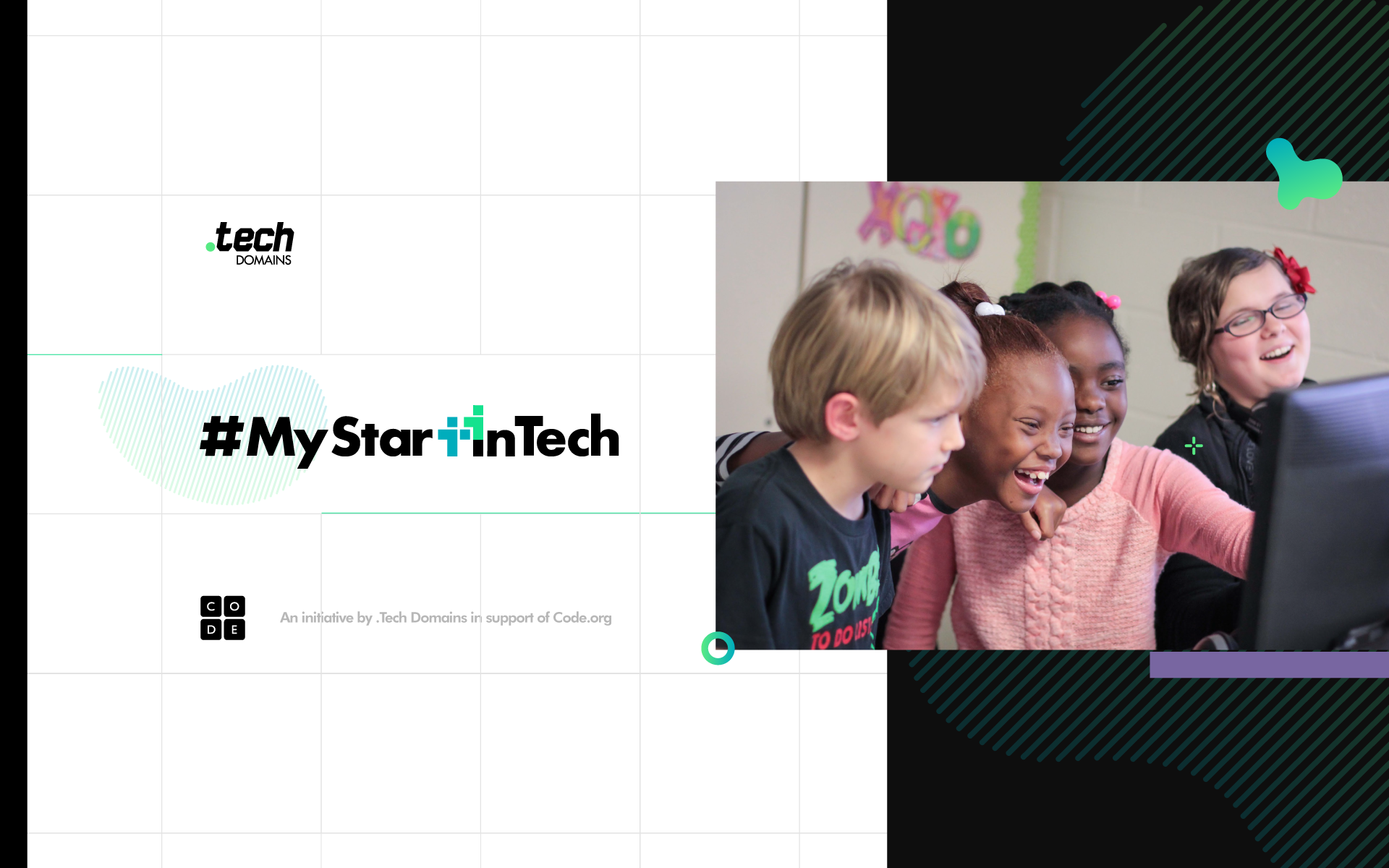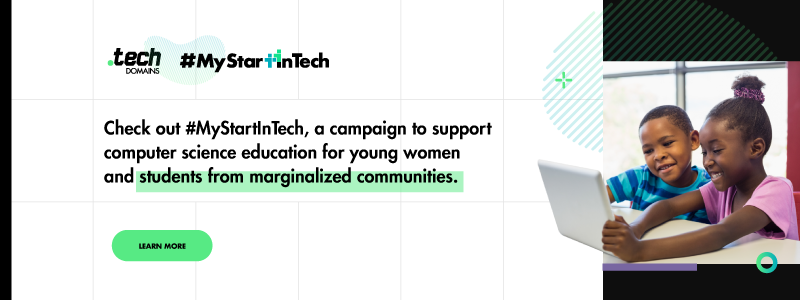The tech workforce in the US is not growing at an optimal pace. The number of schools offering computer science is not enough which is impacting the access of computer science to young women and students from marginalized communities.
The truth is that there are over 410,020 open computing jobs in the US but only 71,226 computer science students graduated into the tech workforce last year.
This is because only 47% of public high schools in the US offer computer science which deeply impacts its access to young women and students from marginalized communities.
To address this pressing issue, we have launched #MyStartInTech, a campaign dedicated to drawing attention to this cause and in turn, help widen access to computer science in schools.
As part of this campaign, we present the #MyStartInTech interview series where some of the esteemed tech entrepreneurs and professionals in the industry share details about their journey in tech. With this, we hope to draw attention to the infinite opportunities that will lay open if young women and students are given the opportunity to study computer science.
In this interview, Jon Gottfried, Co-Founder, Major League Hacking – the global student developer community, talks about how he got his start in the tech world.
Jon previously worked as a Developer Evangelist at Twilio and Echo Nest, served as National Director for StartupBus, and co-created the Hacker Union.
Jon loves creating new technology and teaching people to do the same. He graduated from SUNY Stony Brook University in 2011 and was recently named to the Forbes 30 Under 30 for Education and the Stony Brook University 40 Under 40 for Entrepreneurship.
Let’s find out what he has to say!
When was your first interaction with Computer Science?
I grew up tinkering with computers, but right on the cusp of when they got really powerful. We had dial-up internet and some basic word processor functionality, but not much else.
To do anything particularly interesting, you really had to understand how they worked and how to configure them, which is what drew me into learning programming and systems skills early on.
I started out making basic websites about things I was excited about, like the Harry Potter books. From there, I started to get more into gaming and game development and became obsessed with text-based online games called MUDs. These games were written in C and forced me to learn much more complex programming skills.
All of this was before Stack Overflow existed, so I mostly copy/pasted code from other cool developers and tweaked it until it did what I wanted!
What nudged you into taking up a career in technology?
As I grew older, I decided that I wanted to study Computer Science, and declared it as my major going into college, but realized fairly quickly I was more passionate about writing code than the theory behind it and ended up switching to History to become a teacher instead and leave coding as a hobby.
But in my sophomore year, I ended up having to take a semester off of college, and while I was bored out of my mind in my home town I decided to go on Craigslist and apply for random programming jobs to occupy my time.
I got a job at this EdTech startup a block away from my parent’s house and met some really amazing people there like John Britton, who dragged me to my first Meetups and Hackathons. After discovering the community that existed around technology and the passion and creativity everyone had for not only programming but other disciplines like music or art, I was hooked.
I started going to events all the time, which led me directly to becoming a Developer Evangelist at Twilio and officially starting my career in tech.
What are your earliest memories of using a computer in school?
I remember in my first-grade class, we had these computers with big floppy disks that had educational games on them. But somehow, 6-year-old me became the tech support person for my teacher Mrs. Golden. It was a lot of fun, even if they quickly upgraded to more modern machines!
What is the importance of technology to you now and how does it impact your life?
Technology is just one method of solving problems. The exciting thing to me about it is how accessible it is.
Anyone in the world, with access to a computer, can create something that could potentially impact the lives of millions.
With great power comes great responsibility, but nothing like that has ever existed before, especially with such a low barrier to entry.
How important is it to increase access to computer science and technology to underrepresented communities and young women today?
Since technology has the potential to impact millions of people with a relatively low barrier to entry, it is incredibly important that diverse perspectives are part of the creation process.
Technology can only positively impact all people if all people are involved in its creation.
It is so important to create welcoming and inclusive environments that foster the learning, confidence building, and ultimately creation of technology by a diverse set of people, especially those whose perspectives have historically been excluded from that creation process.
Why do you think access to computer literacy in school is important?
Teaching people how to create technology in school, beyond just teaching computer literacy, helps them understand how the world works and how to impact it.
Not all people have access to computers or resources at home, so schools can democratize the ability to learn technology skills and help more people impact the world and have opportunities that they wouldn’t otherwise find.
What do you think about .Tech Domains taking up this cause?
I am so excited to see .Tech supporting education for young technologists, especially people historically underrepresented in the tech industry.
The industry must come together to change how technology is taught and how our culture nurtures diverse perspectives and people.



